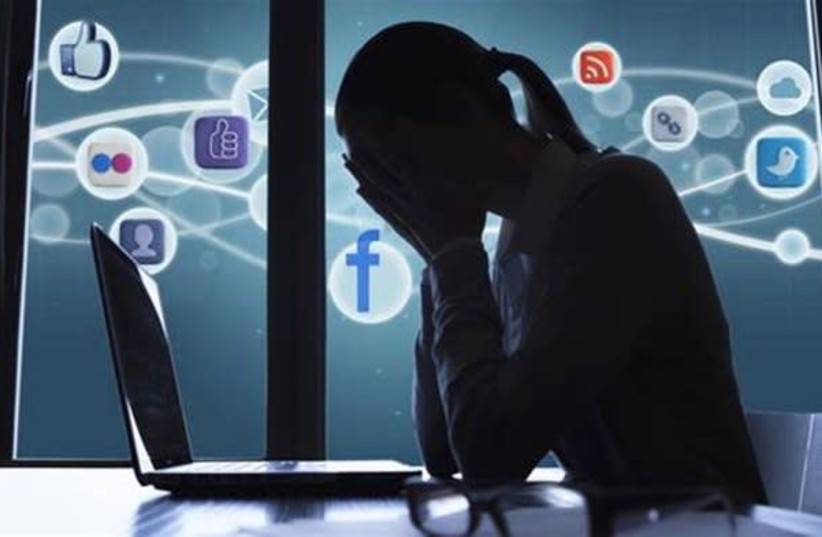The pressure on Facebook and other social media networks is increasing by the day, but as of yet, it’s not enough to make meaningful change in the way social media impacts society, in particular Gen Z. For years, activists have spoken out about the problem of racism and antisemitism on social media networks, including that the trends are skyrocketing on newer platforms popular among teens, like TikTok. But if we have learned anything in the last month with Facebook’s whistleblower Frances Haugen, it’s that hate speech is only the beginning of the predatory social media practices that are dominating and fundamentally changing our world as we know it.
Facebook CEO Mark Zuckerberg came under heavy scrutiny this month when Haugen, a former data scientist at the company, spoke out about Facebook’s willful targeting of teens through its advertising practices, despite internal research demonstrating negative effects of Instagram on teens. For example, one study showed that UK girls reported a 13.5% increase in suicidal thoughts after using Instagram, another that 32% of teen girls who feel bad about their bodies felt worse after using Instagram.
Despite this, Facebook allowed targeted advertising promoting unhealthy products to those specific audiences, and they also structured an algorithm that gives users more of the same products which makes them feel worse. Additionally, platforms like Instagram and TikTok have had a profound negative impact on young girls who, after using unrealistic filters, have been requesting plastic surgery in unprecedented numbers to make themselves look like the filters they see trending online.
TikTok and Instagram both also have a massive problem with targeted harassment and bullying which can be fatal in young teens, disproportionately so for young girls. Even the biggest TikTok stars, some not even legal adults, are targets of vile, shocking, and often sexist hate speech that has been shown in numerous studies to increase anxiety, depression, and suicidal thoughts. Is it any wonder mental illness is reaching unprecedented numbers at increasingly younger ages?
Haugen’s congressional testimony also exposed that Facebook has actively covered up what they knew about how its platform impacts youth negatively and that they have misled the public and investors in regard to how its own platform was used by the organizers of the Capitol Hill siege on January 6. In short, Facebook has the ability to shut down hate speech and incitement and they have the power to do good in how they build their algorithms. Instead, they have consistently chosen to do otherwise, harming younger generations knowingly – and then lying about it.

While disappointing, those of us who have advocated for serious reform in social media hate speech standards are not surprised. After all, if Twitter, for example, has the ability to completely remove Donald Trump from its platform, surely they have the ability to remove the ayatollah of Iran who uses the platform to call for genocide against Israel. Likewise, if platforms can automatically detect illegal activity such as child pornography, they have the technical ability to recognize antisemitic content – or at the very least Holocaust denial.
Yet despite paying lip service to the importance of fighting hate speech, Facebook and other platforms have not been transparent in how much hate they have tracked or removed. In the case of Twitter, they routinely flag content that promotes misinformation about vaccines, yet I have yet to see, ever, a flag on content that is denying the Holocaust, despite the fact Twitter claims Holocaust denial is against their hate speech policies.
While the US Congress debates how to regulate social media companies like Facebook, Israel too is joining the discussion. Last week Communications Minister Yoaz Hendel announced he would be forming a committee to examine how to hold social media companies liable for the content censored – or not censored – on the platform. This comes after years of failure to rein in hate speech, as the algorithms on multiple social media networks actually promote (whether unintentionally or not) incitement to violence and other inflammatory content. In Israel, this has led directly to stabbing attacks and other acts of nationalistic violence.
Sadly, this is no longer an issue of freedom of speech of users, as it is Facebook, and other social media platforms, deciding what speech is promoted and given more visibility through their algorithms. As such, they should also bear legal responsibility for the content they promote, and they should be held accountable for their toxic impact on society.
The writer is the CEO of Social Lite Creative LLC.
